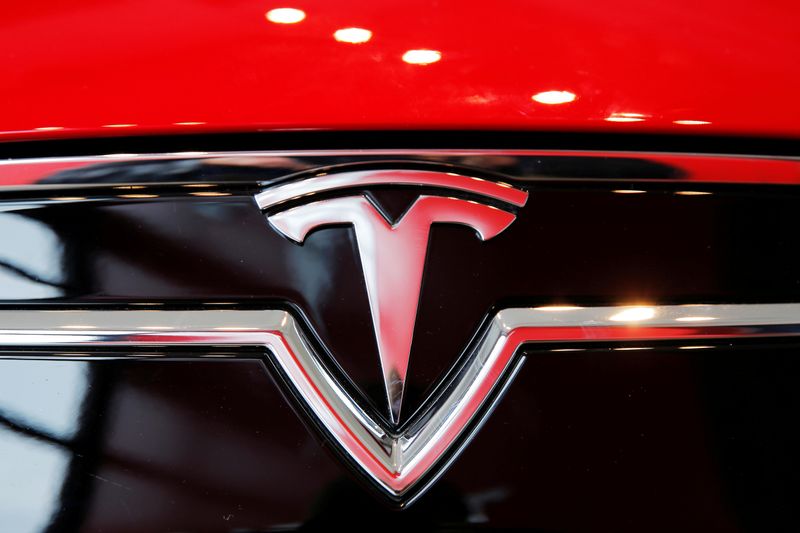By Hyunjoo Jin, David Shepardson and Jane Lanhee Lee
WASHINGTON (Reuters) - Tesla (NASDAQ:TSLA) Inc is pressing a U.S. appeals court to immediately reinstate a 2016 Obama regulation more than doubling penalties for automakers who fail to meet fuel efficiency requirements, according to court filings.
The Trump administration on Jan. 14 delayed the start of higher penalties until the 2022 model year. Tesla told the Second Circuit U.S. Court of Appeals the Trump action was "unlawful" and "diminishes the value of performance-based incentives that electric vehicle manufacturers, such as Tesla, accrue under the standards".
Although President Joe Biden supports tougher emissions standards, his administration opposes Tesla's request for immediate court action, saying the National Highway Traffic Safety Administration (NHTSA) is scrutinizing the Trump action on penalties and will complete its review in six months. A group representing major automakers also opposes immediate action.
Tesla did not respond to a request for comment. Tesla first asked the appeals court to act on March 4.
In a filing Monday it said that the government's position that there was no immediate harm to allowing the Biden administration time to review the Trump decision "ignores the ongoing impacts" on the credit-trading market.
Tesla, whose electric cars produce zero emissions, sells credits to other automakers to reduce their burden of complying with the regulations, and argues that the Trump rule change makes those credits less valuable.
NHTSA said in its interim final rule issued in the final days of the Trump administration that it expected its final rule to cut future burdens on industry by up to $1 billion annually.
Last month, 15 states sued NHTSA for delaying the adoption of the higher penalties for companies that fail to meet fuel efficiency requirements. The Sierra Club and National Resources Defense Council have also sued NHTSA for delaying penalties.
Congress in 2015 ordered federal agencies to adjust civil penalties to account for inflation. In response, NHTSA issued rules hiking fines to $14 from $5.50 for every 0.1 mile per gallon a new vehicle consumes in excess of required standards.

Environmental groups note U.S. fuel economy fines lost nearly 75% of their original value because they had been increased only once - from $5 to $5.50 in 1997 - since 1975.